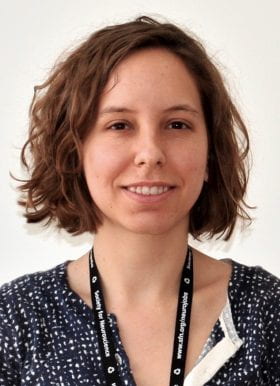Current Members
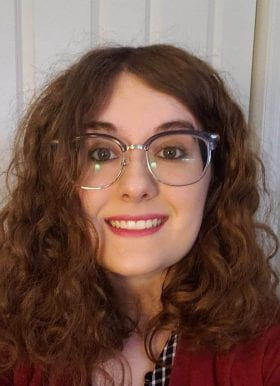
Torri Ball
Program Coordinator
- Email: tball@wustl.edu
Torri received her B.S. in Business Administration from the University of Missouri. She joined the Karch Lab in 2022 and assists the lab with a wide variety of administrative tasks. In her spare time, she enjoys writing, cooking and baking, and losing in fantasy football.
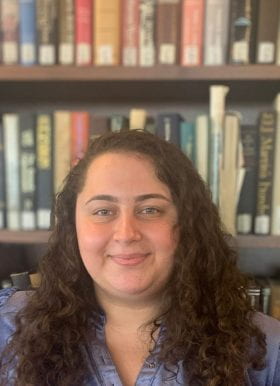
Emma Danhash
Graduate Student
- Phone: 314-362-8668
- Email: edanhash@wustl.edu
Emma received her B.S. in Biological Sciences from the University of California, Irvine where she studied the impact of Alzheimer’s disease-linked mutations on microglial function using both iPSC-derived microglia in vitro and in vivo in a chimeric mouse model of the of the disease. Emma then went on to pursue a PhD in Neuroscience at WashU and joined the Karch lab in 2022. She is interested in utilizing iSPC-microglia and mouse models to understand the role of MS4A4A in mitigating AD-risk. Outside of lab, she enjoys binging TV shows, reading, hanging out with friends, and spending time with her cat, Baby Dee.
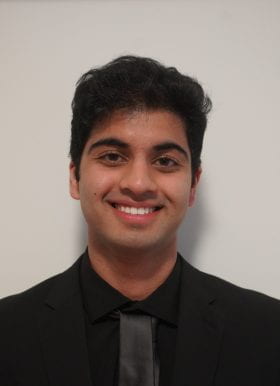
Aarav Dubey
Undergraduate Research Student
- Phone: 314-362-8668
- Email: a.c.dubey@wustl.edu
Aarav Dubey is a Junior at WashU, majoring in Neuroscience. He is working with Miguel to study AD risk genes in vascular cells and the dysregulated pathways that emerge. He is interested in combining his love for biology and statistical analyses to Alzheimer's Disease. Outside of lab, he likes listening to music, boxing, and making videos.
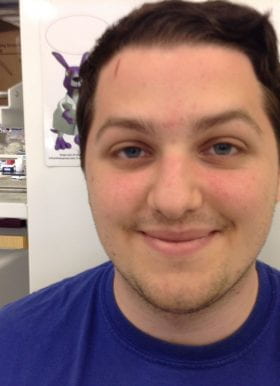
Grant Galasso
Research Technician
- Phone: 314-362-8668
- Email: galassog@wustl.edu
Grant performs general molecular biological work for the lab. Specializes in RNA and RNA assays.
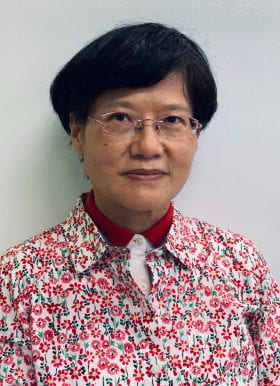
Guangming Huang
Research Specialist
- Phone: 314-362-8668
- Email: ghuang@wustl.edu
Guangming brings over 28 years of research lab experience to the Karch Lab. Her current projects include iOrganoid protein analysis and snRNAseq. In her free time, Guangming enjoys walking, tasting new foods, and taking cruises.
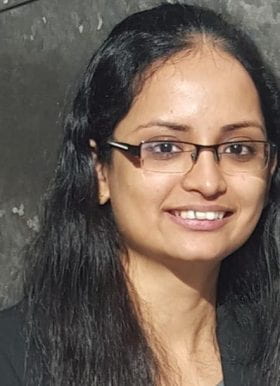
Abhirami Kannan Iyer, Ph.D.
Instructor
- Phone: 314-362-8668
- Email: iyera@wustl.edu
Abhi received her Ph.D. in Immunology from Indiana University School of Medicine at Indianapolis where I studied the role of cytokine signaling pathways in the functional regulation of CD1d-mediated lipid antigen presentation to restricted innate lymphocytes, Natural Killer T (NKT) cells. She was then drawn to the field of neuroimmunology by the growing recognition for the brain’s resident innate immune cells, the microglia, in neurodegenerative and neurological diseases. Her initial work as a postdoctoral researcher was focused at understanding mechanisms involved in CD4+ T cell-mediated motor neuron survival in peripheral nerve injury and amyotrophic lateral sclerosis (ALS) in Dr. Kathryn Jones’ laboratory in IUSM. Abhi then worked with Dr. Azad Bonni at WUSTL and performed preclinical testing of antisense oligonucleotides against the astrocyte-specific ion-pump α2-Na+/K+ ATPase, that is upregulated and contributes to non-cell autonomous neurodegeneration in ALS. In her current role in the Karch Lab, Abhi's research involves mechanistic and functional characterization of dementia and tauopathy-associated microglia-specific risk factors identified by human genetics data in iPSC-derived microglia-like cells. When she is not in the lab, Abhi is enjoying time with loved ones, nature and food.
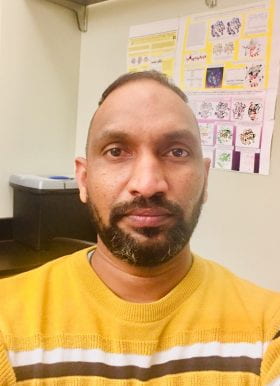
Rama Koppisetti, M.Sc
Staff Scientist
- Phone: 314-362-8668
- Email: krama@wustl.edu
Rama Krishna Koppisetti joined in Karch lab as a Staff Scientist in mid-2021. He has working experience in Drug Discovery and Structural & Molecular Biology. His primary focus is to accelerate ongoing collaborative projects between Dr. Celeste Karch & Dr. Chihiro Sato, to understand Tau Kinetics in Cell models by analysis of IP-MS.
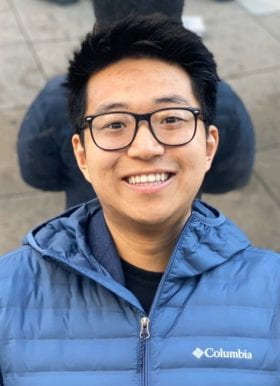
Scott Lee
Research Technician
- Phone: 314-362-8668
- Email: lee.scott@wustl.edu
Scott received his B.S. in Neuroscience from Saint Louis University and is broadly interested in how dysregulated neuron-glia interactions contribute to various neuropsychiatric conditions. He is primarily responsible for the maintenance, expansion, and characterization of iPSC lines. Outside the lab, you can find him playing tennis, exploring Forest Park, or trying new restaurants.
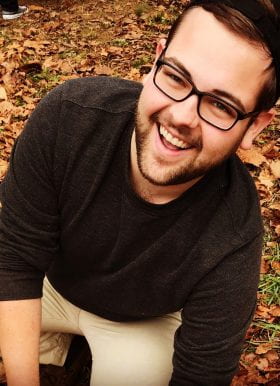
Jacob Marsh, MHA, M.Sc
Research Lab Manager
- Phone: 314-362-8668
- Email: jacobmarsh@wustl.edu
Jacob received his M.H.A. from Maryville University and a Master of Science from the University of Florida. Currently, Jacob spearheads many of the iPSC genomic editing projects in the Karch Lab. Additionally, Jacob functions as the primary contact and facilitator for the Karch Lab's iPSC Biobank which aims to share iPSC lines with investigators interested in Alzheimer's, FTD, and other neurodegenerative diseases.
In his free time Jacob enjoys crying over Taylor Swift, watching the Real Housewives, reading female celebrity memoirs and obsessing over his cat.

Kate Miller
Research Technician
- Phone: 314-362-8668
- Email: mkatherine@wustl.edu
Kate Miller earned her Bachelor of Science in neuroscience from Lehigh University in May 2024 and joined the Karch lab in June 2024. She previously investigated a mechanism-based pharmaceutical for the acute and chronic effects of traumatic brain injury and is currently working on the Karch lab's iPSC team. Kate enjoys reading, playing the piano, and spending time with friends and family outside the lab.
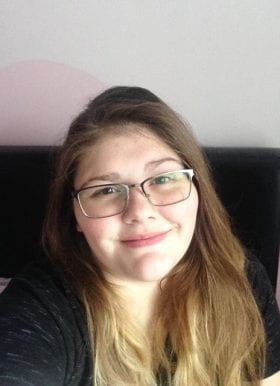
Nadia Miller
Research Technician
- Phone: 314-362-8668
- Email: mnadia@wustl.edu
Nadia completed her B.S. in Biology in December of 2020 from Saint Louis University and joined Karch Lab in August of 2023 as a Research Tech. She will be working on the iPSC team and performing general laboratory housekeeping duties. Outside the lab, Nadia loves making art, playing games, and spending time with friends and family.
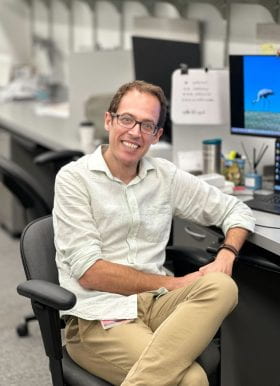
Miguel Minaya, Ph.D.
Assistant Professor of Psychiatry
- Phone: 314-362-8668
- Email: miguel.minaya@wustl.edu
Miguel Minaya is a molecular biologist and genomic scientist. Miguel joined the Karch Lab as a postdoctoral research associate in the spring of 2019, excited to expand his expertise in bioinformatics in the context of neurodegenerative diseases. Since then, Miguel has been focused on the intersection of multi-OMICs approaches and stem cell modeling. These approaches help to understand the molecular mechanisms that drive Alzheimer’s disease and frontotemporal dementia.
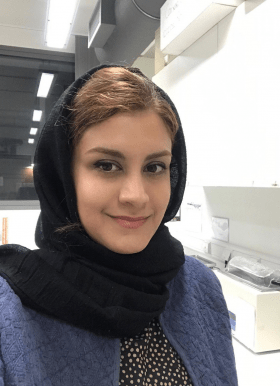
Farzané Mirfakhar, Ph.D.
Postdoctoral Research Associate
- Phone: 314-362-8668
- Email: farzaneh@wustl.edu
Farzané is from Iran and did her PhD in Regenerative Medicine at NOVA medical school in Lisbon, Portugal. Before joining us in 2022, she worked on Alzheimer's disease genetic risk factors and the enigmatic cellular mechanisms associated with disease development. She is now interested in understanding the equally mysterious path cellular mechanisms of lysosomal and synaptic dysfunction play in patient iPSC-derived neural cells with FTD mutations. In her spare time she enjoys reading Persian poetry, carving wood and gardening.
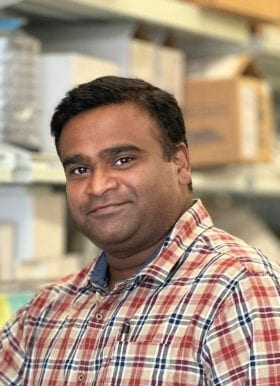
Arun Renganathan, Ph.D.
Staff Scientist
- Phone: 314-362-8668
- Email: arunr@wustl.edu
Arun received his Ph.D. in Biomedical Science from Bharathidasan University, India. His interest in lncRNA biology started during his Swiss government research fellowship in Dr. Emanuela Felley-Bosco’s lab at the University of Zurich, Switzerland where he identified the role of GAS5 lncRNA in malignant pleural mesothelioma. Arun moved to Washu in 2018 and then worked with Dr.Kiran Mahajan to elucidate the pathogenic role of an aberrantly expressed HOX-lincRNA in prostate cancer. He has established novel technology permitting the characterization of lncRNAs, both in vitro and in vivo, and has determined crucial cellular and molecular aspects of key lncRNAs in cancer. In Karch's lab, his research is focused on elucidating the role of lncRNAs in neurodegeneration as well as helping to understand how tau impacts endolysosomal pathways. In his free time, Arun enjoys trying new recipes and exploring food history topics.

Kylie Schache
Graduate Student
- Phone: 314-362-8668
- Email: k.schache@wustl.edu
Kylie received her B.S. in Biochemistry from the University of Michigan in Ann Arbor, where she investigated proteostasis in the lysosomal storage disease Niemann-Pick disease type C. Her research included developing induced pluripotent stem cell (iPSC)-derived neurons and hepatocytes as a disease model. Following her interests in the lysosome, proteostasis, iPSC models, and neurodegeneration, Kylie pursued a PhD in Neuroscience at Washington University and affiliated with the Karch lab. Here, she is studying how MAPT mutations associated with tauopathies affect autophagy endolysosomal pathways in neurons and microglia. Kylie is passionate about science outreach and cool microscopes. Outside of lab, Kylie enjoys cooking vegetarian food, exploring the outdoors, listening to rock n’ roll or jazz music, playing board games, and watching nature documentaries.
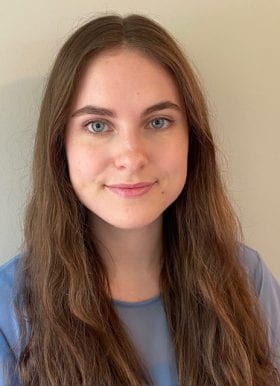
Emma Starr
Research Technician
- Phone: 314-362-8668
- Email: estarr@wustl.edu
Emma received a B.S. in neuroscience and a B.A. in Biochemistry from Drake University where she was previously working on sequencing and expression of TRNP and GSTP genes in dogs and cats. She joined the Karch lab as a research technician in 2023 and is working on the iPSC team. In her free time Emma enjoys cooking, hiking, and spending time with friends and family.
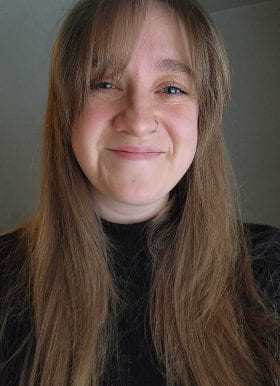
Sam Swift, Ph.D.
Postdoctoral Research Associate
- Phone: 314-362-8668
- Email: swifts@wustl.edu
Dr. Swift grew up in rural Minnesota and attended Iowa State University for her bachelor’s degree, where she had her first exposure to laboratory research. These early experiences involved working with multiple models of lysosomal storage disorder, retinal degeneration, and regeneration in animal models of disease. These experiences led her to pursue a PhD in Biomedical Sciences at the Medical College of Wisconsin, where her dissertation work focused on the polygenic regulation of cardiomyocyte proliferation and polyploidization. Following a motivation to study disease in the context of genetically diverse models Sam joined the Karch lab at Wash U as a Postdoctoral Research Associate where she is currently studying regulators of Tau propagation and accumulation.
Outside (and inside) of lab Sam strives to achieve ultimate coziness and can usually be found chatting with a friend over a warm beverage, playing a game, reading, cuddling her cats, tending her plants, cooking delicious food, taking a long leisurely walk/ hike, or writing.
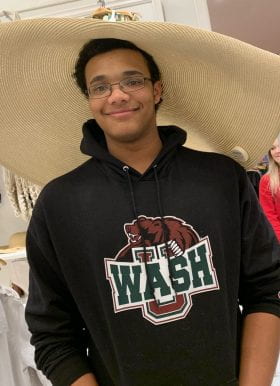
Anthony Verbeck
Research Technician
- Phone: 314-362-8668
- Email: averbeck22@wustl.edu
Anthony is a Research Technician in the Karch Lab. He is currently working on the analysis of proteins implicated with neurodegeneration and animal husbandry practices.
